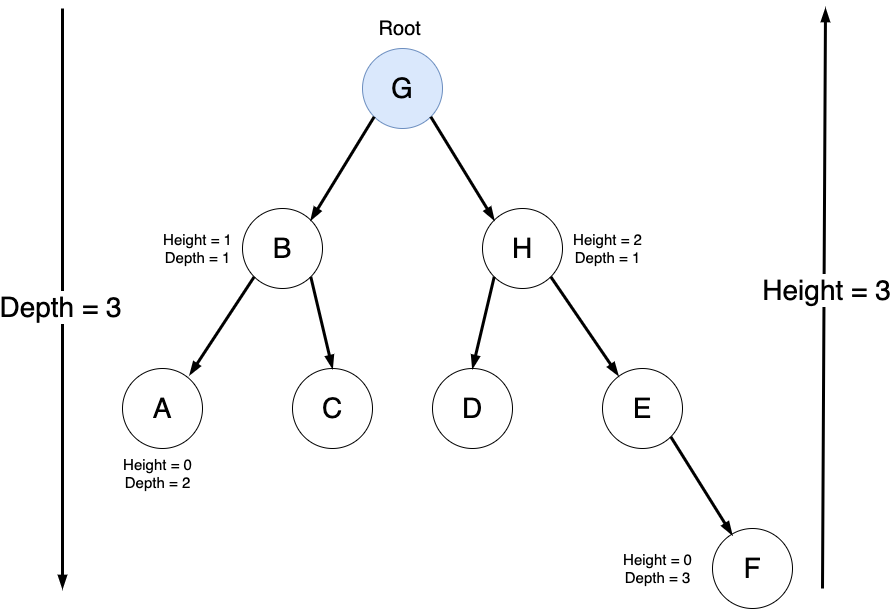A Binary Search Tree (BST) is a node-based binary tree data structure which has the following properties:
- The left subtree of a node contains only nodes with keys lesser than the node’s key.
- The right subtree of a node contains only nodes with keys greater than the node’s key.
- The left and right subtree each must also be a binary search tree.
- There must be no duplicate nodes (But can handle duplicates using count).
- O(n) worst case can be encountered when a tree is created by adding data already in sorted order

Characteristics of a Binary Search Tree
- Ordered Structure: BST is an ordered or sorted data structure, which allows for efficient search, insertion, and deletion operations.
- Dynamic Size: The size of the BST can dynamically increase or decrease, depending on the number of elements.
Advantages
- Efficient Searching: BST enables average time complexity of O(log n) for search operations.
- Ordered Data: BST keeps the elements in a sorted order, which is beneficial for range searches and ordered data retrieval.
Disadvantages
- Skewed Tree: In the worst case, especially when not balanced, BST can become skewed, resembling a linked list with time complexity degrading to O(n).
- Complexity in Balancing: Maintaining a balanced BST (like AVL or Red-Black Tree) requires additional logic and rotations.
Basic Operations (if balanced)
- Insertion: Add a new node while maintaining the BST properties. O(log(n))
- Deletion: Remove a node and rearrange the tree to preserve BST properties. O(log(n))
- Search: Find a node with a given value. O(log(n))
- Traversal: Visit all nodes in a specific order (e.g., in-order, pre-order, post-order).
BST_Node.h
template <typename T>
class BSTNode {
public:
T key;
BSTNode *left, *right;
BSTNode(T value) : key(value), left(nullptr), right(nullptr) {}
};
BST.h
template <typename T>
class BST {
public:
BST() : root(nullptr) {}
// Methods for insertion, deletion, search, and traversal
private:
BSTNode<T> *root;
};